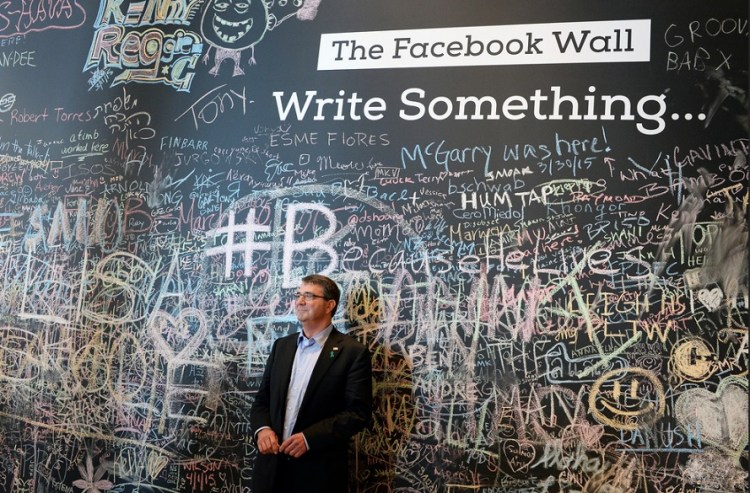While the Bay Area was focused on the Apple Watch release last week, Washington’s national security community was more closely monitoring a different event in the region: Secretary of Defense Ashton Carter’s visit to Silicon Valley. Carter’s visit was an attempt by the defense establishment to improve relations with America’s commercial tech sector.
For the too often “dreary” Pentagon (as Carter put it), engaging the tech community brings a certain cachet missing from the building’s nearly 18 miles of corridors. Silicon Valley’s reaction to the visit has been decidedly blasé. To wit, the visit seems to have garnered much less coverage in the local media compared to the attention received in Washington.
For the Pentagon to gain any traction, Silicon Valley’s perspective will need to change. And there are good reasons why it should:
1. Money. For starters, despite budgetary belt tightening, you can still find plenty of money in Washington. The Pentagon is one of the single largest funders of R&D in the world, spending more than $64 billion annually.
2. Leeway to experiment. Unlike other investors, the Defense Department is willing to take a long-term outlook, allowing for more experimentation. Boston Dynamics, since acquired by Google, is a case in point. Technology funded by the Pentagon is often turned around to support broader applications. GPS, the Internet, and digital photography would never have been possible without Pentagon support.
3. Challenges that attract top talent. Most importantly, there are unique challenges that only defense can offer. The reality is that daunting national security dilemmas can spark the interest of talented scientists and engineers and bring out their best work.
In the recent film The Imitation Game, when asked by a British military official, “Why do you want to work for His Majesty’s Government?” Alan Turing’s response was direct: “Oh, I don’t really.” But Turing did want to engage in challenging work, and signing on with the Ministry of Defence in 1939 offered that opportunity.
Today, the Pentagon confronts some of the toughest puzzles on earth. And they involve more than the oft-mentioned cyber and IT. Here are a few examples.
* Defense leaders want to cost-efficiently launch small satellites under 10 pounds but need to make them more reliable. Imagine a Special Forces team of a dozen operators with its own surveillance satellite. Given commercial interest in the same technology, there are plenty of avenues for cooperation.
* Envision hundreds, or thousands, of low-cost drones swarming around adversaries like a networked flight of swallows. The Pentagon wants this technology but needs better artificial intelligence, processing, and power sources. The same technology could be used for commercial applications like package delivery or monitoring infrastructure.
* Since soldiers often operate in off-the-grid areas, battery power is of critical importance. The Defense Department has explored everything from batteries that disappear to those that do not corrode and have higher energy density. Success would redefine the realm of the possible for mobile and remote applications.
There are more areas that would benefit from greater cooperation: driverless cars, brain-computer interfaces, and tools that better enable language translation, to name a few.
Yes, we will face pitfalls. Intellectual property must be protected. Many will have a hard time trusting the Defense Department after revelations about the National Security Agency’s surveillance programs. And the Pentagon must ensure that it does not bind partners with regulations. Right now, however, the Secretary is saying the right things.
For both communities, engaging each other is the right and sensible thing to do. Learning how to work better together will not be easy, but that too is part of the puzzle. The rewards are worth the effort: national security, better technology, growing revenue, and the ability to crack some of the hardest problems out there. Washington has begun the process by extending an olive branch. Now it is up to Silicon Valley to accept.
Joshua Pavluk is a Senior Associate at Avascent, where he advises clients across the aerospace & defense, homeland security and public safety sectors. His commentary has appeared in National Defense and GlobalPost.


